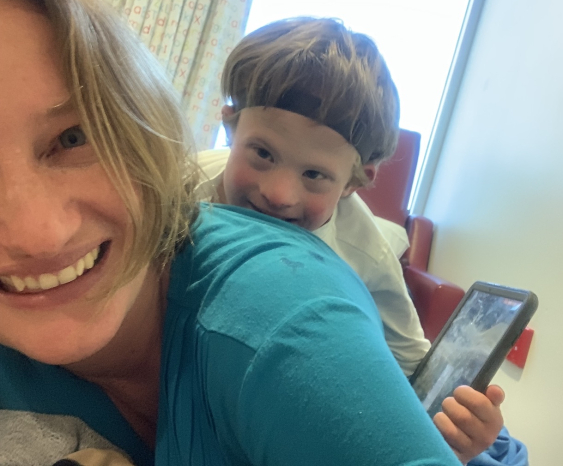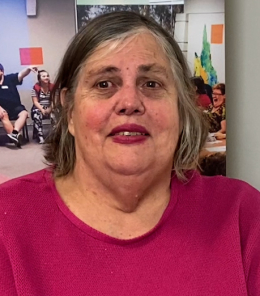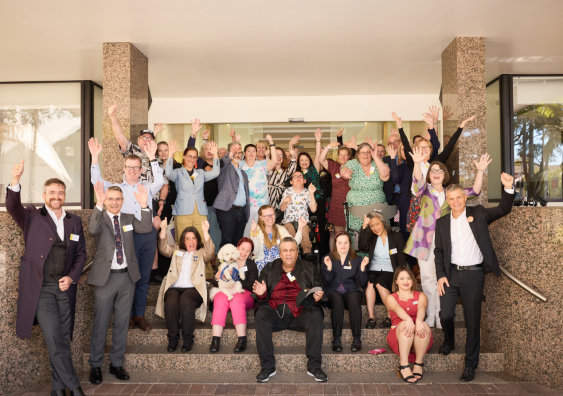The National Centre of Excellence on Intellectual Disability Health was opened today at the University of New South Wales, Sydney, by Deputy Minister for Health and Aged Care, Ged Carney. The Centre will serve as a catalyst for action to improve access to quality, timely and comprehensive health care for people with intellectual disability.
The establishment of the Centre is a response to the significant health disadvantage experienced by people with intellectual disability. The Centre will support the implementation of the Australian Government’s National Roadmap for Improving the Health of People with Intellectual Disability. Professor Julian Troller, from the School of Clinical Medicine at the University of New South Wales, will lead the National Centre’s operations. It has been funded by the Australian Government at $22 million over four years from 2022-2023.
“There are 450,000 Australians with intellectual disability who deserve good, personalised, compassionate healthcare that meets their needs,” Mr Carney said at the official opening of the centre at the University of New South Wales. “The lived experiences and skills of people with disability will be central to the centre’s success.”
Combining advocacy, research and clinical experience
The National Centre is led by a consortium including the University of New South Wales, Intellectual Disability Council, Down Syndrome Australia, Queensland Disability Network, Indigenous Disability Network Australia, University of Melbourne, Telethon Kids Institute, Matter Intellectual Disability and Autism Services (in partnership with the University of Queensland) and the Disability Research Centre (in partnership with the University of Sydney), bringing together strong advocacy and clinical research experience in intellectual disability health.
The effort will be supported by a broad network of 20 partner organisations and 36 collaborating organisations, including provincial health departments, universities, primary health care networks, peak authorities and regulatory bodies, Indigenous community-controlled organisations and local health districts.

“Real hope for change”: Rebecca Kelly and her son Ryan.
Professor Attila Brungs, Vice-Chancellor and President of the University of New South Wales, said the national centre would play a key role in co-designing better healthcare for people with intellectual disability and bringing about meaningful change.
“This national centre will contribute to reducing the health disparities faced by people with intellectual disabilities by improving collaboration between intellectual disability health services, research organisations and advocacy organisations. We are proud to be part of this co-designed initiative,” Professor Brungs said.
The Centre is built on an innovative and inclusive model that involves co-governance with people with intellectual disabilities, their families and supporters. It will focus on people with a range of needs, including intellectually disabled and Indigenous people with intellectual disabilities, people living in regional and remote areas, and people with homelessness, mental health, drug and alcohol issues.
Read more: New calls to address health inequalities for people with intellectual disabilities
The centre’s acting director, Professor Julian Troller, said previous research by consortium members had highlighted significant health disparities for people with intellectual disability in Australia.
“Now is the time to look at innovative solutions, which can only be achieved through collaboration between people with intellectual disabilities, health and disability professionals, service and regulators, academics and advocates,” Professor Troller said.
He said the core functions of the National Centre would include providing leadership on the health of people with intellectual disabilities, promoting innovation and collaboration, and increasing the capacity of health services to meet the needs of people with intellectual disabilities through training and development of best practice models of care.
Improving the health of people with intellectual disabilities
Donna Best, who has an intellectual disability and is group coordinator for the Queensland Disability Network’s Hot Topics peer support group, said the opening of the centre was meaningful to her.

“This is a pivotal moment”: Donna Best, group coordinator for the Queensland Disability Network’s Hot Topics Spear Support Group.
“For me as a person with an intellectual disability, this is a significant moment and it’s wonderful that we are leading this effort. If we have a centre that helps the health system, health professionals and staff understand us, listen to us and engage us in our care, we will have better care and we will have better health. We can show the world and lead the way in what is possible,” she said.
Dr Rebecca Kelly is an environmental scientist who supports her young son Ryan, who has an intellectual disability and complex health needs, and says Ryan has experienced many challenges accessing the medical care he needs.
“The Center and its comprehensive, collaborative approach to improving the health of people with intellectual disabilities gives me real hope for change. I have high hopes that this commitment across advocacy, research and government will ensure Ryan’s medical needs are met long after I am no longer able to continue fighting for him,” said Dr. Kelly.
The Centre will also support access to clinical expertise and provide online support to people with intellectual disabilities and their families, helping to link them to appropriate healthcare services. To find out more about the Centre, please register here.

